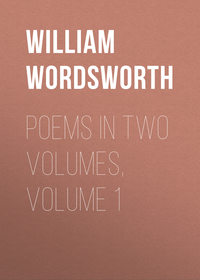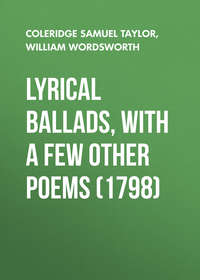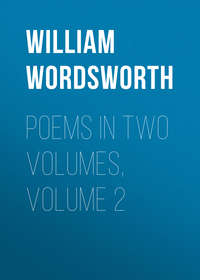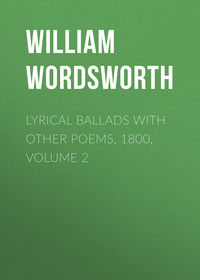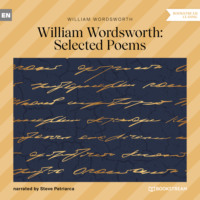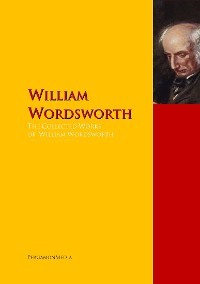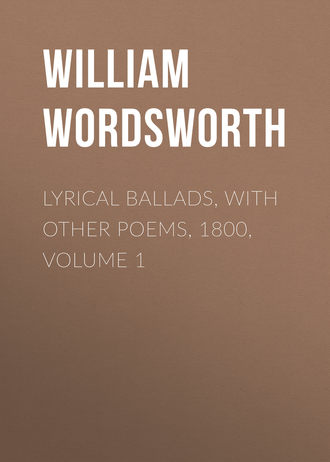 полная версия
полная версияLyrical Ballads, with Other Poems, 1800, Volume 1
If I had undertaken a systematic defence of the theory upon which these poems are written, it would have been my duty to develope the various causes upon which the pleasure received from metrical language depends. Among the chief of these causes is to be reckoned a principle which must be well known to those who have made any of the Arts the object of accurate reflection; I mean the pleasure which the mind derives from the perception of similitude in dissimilitude. This principle is the great spring of the activity of our minds and their chief feeder. From this principle the direction of the sexual appetite, and all the passions connected with it take their origin: It is the life of our ordinary conversation; and upon the accuracy with which similitude in dissimilitude, and dissimilitude in similitude are perceived, depend our taste and our moral feelings. It would not have been a useless employment to have applied this principle to the consideration of metre, and to have shewn that metre is hence enabled to afford much pleasure, and to have pointed out in what manner that pleasure is produced. But my limits will not permit me to enter upon this subject, and I must content myself with a general summary.
I have said that Poetry is the spontaneous overflow of powerful feelings: it takes its origin from emotion recollected in tranquillity: the emotion is contemplated till by a species of reaction the tranquillity gradually disappears, and an emotion, similar to that which was before the subject of contemplation, is gradually produced, and does itself actually exist in the mind. In this mood successful composition generally begins, and in a mood similar to this it is carried on; but the emotion, of whatever kind and in whatever degree, from various causes is qualified by various pleasures, so that in describing any passions whatsoever, which are voluntarily described, the mind will upon the whole be in a state of enjoyment. Now if Nature be thus cautious in preserving in a state of enjoyment a being thus employed, the Poet ought to profit by the lesson thus held forth to him, and ought especially to take care, that whatever passions he communicates to his Reader, those passions, if his Reader's mind be sound and vigorous, should always be accompanied with an overbalance of pleasure. Now the music of harmonious metrical language, the sense of difficulty overcome, and the blind association of pleasure which has been previously received from works of rhyme or metre of the same or similar construction, all these imperceptibly make up a complex feeling of delight, which is of the most important use in tempering the painful feeling which will always be found intermingled with powerful descriptions of the deeper passions. This effect is always produced in pathetic and impassioned poetry; while in lighter compositions the ease and gracefulness with which the Poet manages his numbers are themselves confessedly a principal source of the gratification of the Reader. I might perhaps include all which it is necessary to say upon this subject by affirming what few persons will deny, that of two descriptions either of passions, manners, or characters, each of them equally well executed, the one in prose and the other in verse, the verse will be read a hundred times where the prose is read once. We see that Pope by the power of verse alone, has contrived to render the plainest common sense interesting, and even frequently to invest it with the appearance of passion. In consequence of these convictions I related in metre the Tale of GOODY BLAKE and HARRY GILL, which is one of the rudest of this collection. I wished to draw attention to the truth that the power of the human imagination is sufficient to produce such changes even in our physical nature as might almost appear miraculous. The truth is an important one; the fact (for it is a fact) is a valuable illustration of it. And I have the satisfaction of knowing that it has been communicated to many hundreds of people who would never have heard of it, had it not been narrated as a Ballad, and in a more impressive metre than is usual in Ballads.
Having thus adverted to a few of the reasons why I have written in verse, and why I have chosen subjects from common life, and endeavoured to bring my language near to the real language of men, if I have been too minute in pleading my own cause, I have at the same time been treating a subject of general interest; and it is for this reason that I request the Reader's permission to add a few words with reference solely to these particular poems, and to some defects which will probably be found in them. I am sensible that my associations must have sometimes been particular instead of general, and that, consequently, giving to things a false importance, sometimes from diseased impulses I may have written upon unworthy subject; but I am less apprehensive on this account, than that my language may frequently have suffered from those arbitrary connections of feelings and ideas with particular words, from which no man can altogether protect himself. Hence I have no doubt that in some instances feelings even of the ludicrous may be given to my Readers by expressions which appeared to me tender and pathetic. Such faulty expressions, were I convinced they were faulty at present, and that they must necessarily continue to be so, I would willingly take all reasonable pains to correct. But it is dangerous to make these alterations on the simple authority of a few individuals, or even of certain classes of men; for where the understanding of an Author is not convinced, or his feelings altered, this cannot be done without great injury to himself: for his own feelings are his stay and support, and if he sets them aside in one instance, he may be induced to repeat this act till his mind loses all confidence in itself and becomes utterly debilitated. To this it may be added, that the Reader ought never to forget that he is himself exposed to the same errors as the Poet, and perhaps in a much greater degree: for there can be no presumption in saying that it is not probable he will be so well acquainted with the various stages of meaning through which words have passed, or with the fickleness or stability of the relations of particular ideas to each other; and above all, since he is so much less interested in the subject, he may decide lightly and carelessly.
Long as I have detained my Reader, I hope he will permit me to caution him against a mode of false criticism which has been applied to Poetry in which the language closely resembles that of life and nature. Such verses have been triumphed over in parodies of which Dr. Johnson's Stanza is a fair specimen.
"I put my hat upon my head, And walk'd into the Strand, And there I met another man Whose hat was in his hand."Immediately under these lines I will place one of the most justly admired stanzas of the "Babes in the Wood."
"These pretty Babes with hand in hand Went wandering up and down; But never more they saw the Man Approaching from the Town."In both of these stanzas the words, and the order of the words, in no respect differ from the most unimpassioned conversation. There are words in both, for example, "the Strand," and "the Town," connected with none but the most familiar ideas; yet the one stanza we admit as admirable, and the other as a fair example of the superlatively contemptible. Whence arises this difference? Not from the metre, not from the language, not from the order of the words; but the matter expressed in Dr. Johnson's stanza is contemptible. The proper method of treating trivial and simple verses to which Dr. Johnson's stanza would be a fair parallelism is not to say this is a bad kind of poetry, or this is not poetry, but this wants sense; it is neither interesting in itself, nor can lead to any thing interesting; the images neither originate in that sane state of feeling which arises out of thought, nor can excite thought or feeling in the Reader. This is the only sensible manner of dealing with such verses: Why trouble yourself about the species till you have previously decided upon the genus? Why take pains to prove that an Ape is not a Newton when it is self-evident that he is not a man.
I have one request to make of my Reader, which is, that in judging these Poems he would decide by his own feelings genuinely, and not by reflection upon what will probably be the judgment of others. How common is it to hear a person say, "I myself do not object to this style of composition or this or that expression, but to such and such classes of people it will appear mean or ludicrous." This mode of criticism so destructive of all sound unadulterated judgment is almost universal: I have therefore to request that the Reader would abide independently by his own feelings, and that if he finds himself affected he would not suffer such conjectures to interfere with his pleasure.
If an Author by any single composition has impressed us with respect for his talents, it is useful to consider this as affording a presumption, that, on other occasions where we have been displeased, he nevertheless may not have written ill or absurdly; and, further, to give him so much credit for this one composition as may induce us to review what has displeased us with more care than we should otherwise have bestowed upon it. This is not only an act of justice, but in our decisions upon poetry especially, may conduce in a high degree to the improvement of our own taste: for an accurate taste in Poetry and in all the other arts, as Sir Joshua Reynolds has observed, is an acquired talent, which can only be produced by thought and a long continued intercourse with the best models of composition. This is mentioned not with so ridiculous a purpose as to prevent the most inexperienced Reader from judging for himself, (I have already said that I wish him to judge for himself;) but merely to temper the rashness of decision, and to suggest that if Poetry be a subject on which much time has not been bestowed, the judgment may be erroneous, and that in many cases it necessarily will be so.
I know that nothing would have so effectually contributed to further the end which I have in view as to have shewn of what kind the pleasure is, and how the pleasure is produced which is confessedly produced by metrical composition essentially different from what I have here endeavoured to recommend; for the Reader will say that he has been pleased by such composition and what can I do more for him? The power of any art is limited and he will suspect that if I propose to furnish him with new friends it is only upon condition of his abandoning his old friends. Besides, as I have said, the Reader is himself conscious of the pleasure which he has received from such composition, composition to which he has peculiarly attached the endearing name of Poetry; and all men feel an habitual gratitude, and something of an honorable bigotry for the objects which have long continued to please them: we not only wish to be pleased, but to be pleased in that particular way in which we have been accustomed to be pleased. There is a host of arguments in these feelings; and I should be the less able to combat them successfully, as I am willing to allow, that, in order entirely to enjoy the Poetry which I am recommending, it would be necessary to give up much of what is ordinarily enjoyed. But would my limits have permitted me to point out how this pleasure is produced, I might have removed many obstacles, and assisted my Reader in perceiving that the powers of language are not so limited as he may suppose; and that it is possible that poetry may give other enjoyments, of a purer, more lasting, and more exquisite nature. But this part of my subject I have been obliged altogether to omit: as it has been less my present aim to prove that the interest excited by some other kinds of poetry is less vivid, and less worthy of the nobler powers of the mind, than to offer reasons for presuming, that, if the object which I have proposed to myself were adequately attained, a species of poetry would be produced, which is genuine poetry; in its nature well adapted to interest mankind permanently, and likewise important in the multiplicity and quality of its moral relations. From what has been said, and from a perusal of the Poems, the Reader will be able clearly to perceive the object which I have proposed to myself: he will determine how far I have attained this object; and, what is a much more important question, whether it be worth attaining; and upon the decision of these two questions will rest my claim to the approbation of the public.
EXPOSTULATION AND REPLY
"Why, William, on that old grey stone, Thus for the length of half a day, Why, William, sit you thus alone, And dream your time away?" "Where are your books? that light bequeath'd To beings else forlorn and blind! Up! Up! and drink the spirit breath'd From dead men to their kind." "You look round on your mother earth, As if she for no purpose bore you; As if you were her first-born birth, And none had lived before you!" One morning thus, by Esthwaite lake, When life was sweet, I knew not why, To me my good friend Matthew spake, And thus I made reply. "The eye it cannot chuse but see, We cannot bid the ear be still; Our bodies feel, where'er they be, Against, or with our will." "Nor less I deem that there are powers Which of themselves our minds impress, That we can feed this mind of ours In a wise passiveness." "Think you, mid all this mighty sum Of things for ever speaking, That nothing of itself will come, But we must still be seeking?" " – Then ask not wherefore, here, alone, Conversing as I may, I sit upon this old grey stone, And dream my time away."THE TABLES TURNED;
A SKETCH
The little hedge-row birds That peck along the road, regard him not. He travels on, and in his face, his step, His gait, is one expression; every limb, His look and bending figure, all bespeak A man who does not move with pain, but moves With thought – He is insensibly subdued To settled quiet: he is one by whom All effort seems forgotten, one to whom Long patience has such mild composure given, That patience now doth seem a thing, of which He hath no need. He is by nature led To peace so perfect, that the young behold With envy, what the old man hardly feels. – I asked him whither he was bound, and what The object of his journey; he replied That he was going many miles to take A last leave of his son, a mariner, Who from a sea-fight had been brought to Falmouth, And there was lying in an hospital.THE COMPLAINT OF A FORSAKEN INDIAN WOMAN
[When a Northern Indian, from sickness, is unable to continue his journey with his companions; he is left behind, covered over with Deer-skins, and is supplied with water, food, and fuel if the situation of the place will afford it. He is informed of the track which his companions intend to pursue, and if he is unable to follow, or overtake them, he perishes alone in the Desart; unless he should have the good fortune to fall in with some other Tribes of Indians. It is unnecessary to add that the females are equally, or still more, exposed to the same fate. See that very interesting work, Hearne's Journey from Hudson's Bay to the Northern Ocean. In the high Northern Latititudes, as the same writer informs us, when the Northern Lights vary their position in the air, they make a rustling and a crackling noise. This circumstance is alluded to in the first stanza of the following poem.]
THE COMPLAINT, etc Before I see another day, Oh let my body die away! In sleep I heard the northern gleams; The stars they were among my dreams; In sleep did I behold the skies, I saw the crackling flashes drive; And yet they are upon my eyes, And yet I am alive. Before I see another day, Oh let my body die away! My fire is dead: it knew no pain; Yet is it dead, and I remain. All stiff with ice the ashes lie; And they are dead, and I will die. When I was well, I wished to live, For clothes, for warmth, for food, and fire; But they to me no joy can give, No pleasure now, and no desire. Then here contented will I lie; Alone I cannot fear to die. Alas! you might have dragged me on Another day, a single one! Too soon despair o'er me prevailed; Too soon my heartless spirit failed; When you were gone my limbs were stronger, And Oh how grievously I rue, That, afterwards, a little longer, My friends, I did not follow you! For strong and without pain I lay, My friends, when you were gone away. My child! they gave thee to another, A woman who was not thy mother. When from my arms my babe they took, On me how strangely did he look! Through his whole body something ran, A most strange something did I see; – As if he strove to be a man, That he might pull the sledge for me. And then he stretched his arms, how wild! Oh mercy! like a little child. My little joy! my little pride! In two days more I must have died. Then do not weep and grieve for me; I feel I must have died with thee. Oh wind that o'er my head art flying, The way my friends their course did bend, I should not feel the pain of dying, Could I with thee a message send. Too soon, my friends, you went away; For I had many things to say. I'll follow you across the snow, You travel heavily and slow: In spite of all my weary pain, I'll look upon your tents again. My fire is dead, and snowy white The water which beside it stood; The wolf has come to me to-night, And he has stolen away my food. For ever left alone am I, Then wherefore should I fear to die? My journey will be shortly run, I shall not see another sun, I cannot lift my limbs to know If they have any life or no. My poor forsaken child! if I For once could have thee close to me, With happy heart I then should die, And my last thoughts would happy be. I feel my body die away, I shall not see another day.THE LAST OF THE FLOCK
In distant countries I have been, And yet I have not often seen A healthy man, a man full grown, Weep in the public roads alone. But such a one, on English ground, And in the broad high-way, I met; Along the broad high-way he came, His cheeks with tears were wet. Sturdy he seemed, though he was sad; And in his arms a lamb he had. He saw me, and he turned aside, As if he wished himself to hide: Then with his coat he made essay To wipe those briny tears away. I follow'd him, and said, "My friend What ails you? wherefore weep you so?" – "Shame on me, Sir! this lusty lamb, He makes my tears to flow. To-day I fetched him from the rock; He is the last of all my flock." When I was young, a single man, And after youthful follies ran. Though little given to care and thought, Yet, so it was, a ewe I bought; And other sheep from her I raised, As healthy sheep as you might see, And then I married, and was rich As I could wish to be; Of sheep I numbered a full score, And every year increas'd my store. Year after year my stock it grew, And from this one, this single ewe, Full fifty comely sheep I raised, As sweet a flock as ever grazed! Upon the mountain did they feed; They throve, and we at home did thrive. – This lusty lamb of all my store Is all that is alive; And now I care not if we die, And perish all of poverty. Six children, Sir! had I to feed, Hard labour in a time of need! My pride was tamed, and in our grief, I of the parish ask'd relief. They said I was a wealthy man; My sheep upon the mountain fed, And it was fit that thence I took Whereof to buy us bread: "Do this; how can we give to you," They cried, "what to the poor is due?" I sold a sheep as they had said, And bought my little children bread, And they were healthy with their food; For me it never did me good. A woeful time it was for me, To see the end of all my gains, The pretty flock which I had reared With all my care and pains, To see it melt like snow away! For me it was a woeful day. Another still! and still another! A little lamb, and then its mother! It was a vein that never stopp'd, Like blood-drops from my heart they dropp'd. Till thirty were not left alive They dwindled, dwindled, one by one, And I may say that many a time I wished they all were gone: They dwindled one by one away; For me it was a woeful day. To wicked deeds I was inclined, And wicked fancies cross'd my mind, And every man I chanc'd to see, I thought he knew some ill of me. No peace, no comfort could I find, No ease, within doors or without, And crazily, and wearily I went my work about. Oft-times I thought to run away; For me it was a woeful day. Sir! 'twas a precious flock to me, As dear as my own children be; For daily with my growing store I loved my children more and more. Alas! it was an evil time; God cursed me in my sore distress, I prayed, yet every day I thought I loved my children less; And every week, and every day, My flock, it seemed to melt away. They dwindled. Sir, sad sight to see! From ten to five, from five to three, A lamb, a weather, and a ewe; And then at last, from three to two; And of my fifty, yesterday I had but only one, And here it lies upon my arm, Alas! and I have none; To-day I fetched it from the rock; It is the last of all my flock.LINES


